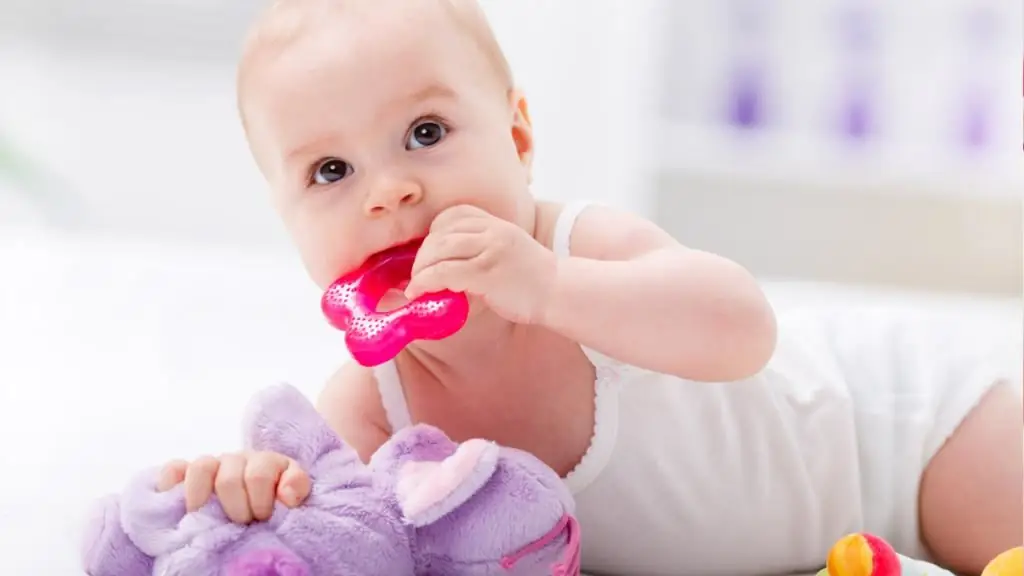2026 Author: Priscilla Miln | miln@babymagazinclub.com. Last modified: 2025-01-22 17:55:15
Every person goes through this difficult but important stage of his life - puberty. Parents anxiously await this moment, wondering what it will bring and what to expect from their maturing child. During this period, complex physical and mental processes take place in the child's body. The hormones produced by the gonads begin to flow into the blood, the entire immune system is rebuilt. There is an active growth of all organs, and first of all - the brain. Growth rates at puberty are different for each part of the body, for example, the arms and legs stretch faster than the torso, so any teenager seems angular and awkward, sometimes because of this, coordination of movements is even temporarily disturbed.

Girls usually reach puberty at 10-12 years of age. Until that time, girls gain very little in height and weight, sometimes only 2-3 cm and a couple of kilograms per year. But from the beginning of puberty, they have a "brutal appetite", the annual weight gain is 6-7 kg, and the body grows by about a centimeter per month. In most cases, in girls, puberty begins with the growth of the mammary glands. First, the nipple increases, then graduallythe breast itself begins to grow. At the same time, the hips begin to expand, the waist appears. After six months or a year, active hair growth begins, and after about two years from the moment the first symptoms appear, the girl has her first menstruation. Of course, all this is individual and depends on many factors, from genetic predisposition to the ecology of the area where she lives and the food she eats.

A little later, puberty occurs in boys. It starts at the age of 12-13 and manifests itself in the rapid growth of the whole organism, starting with the genitals. The vocal cords lengthen, there is a "breaking" of the voice, lowering it by one octave. Increased hair growth begins: first in the armpits and groin, and a little later on the face. At the same time, the first wet dreams appear, which indicates the maturation of the seminal vesicles. The youthful body becomes more muscular, skeletal mass and muscle mass increase. Unlike girls, at puberty, the nervous system of boys is more unstable, they are subject to frequent mood swings and dissatisfaction with themselves. At this moment, it is very important to understand your child, because right now he is laying the character and disposition of the future man.

For parents, the puberty of their children is no less worrisome. A son or daughter, whom they used to see as small children, becomes adults and independent. Now they plan their own time, themselvesmake decisions. They have their own secrets, they retire in the companies of their peers. It is important not to "lose" the child during this period. This requires a trusting relationship with him, understanding and respect for him as a person. It is necessary to talk a lot with a teenager, discuss and encourage his decisions, tactfully correcting and directing him in the right direction. Only in this way can you become a friend to your child and strengthen these relationships for the rest of your life.
Recommended:
How to raise a teenager: problems, difficulties and ways to solve them. Councils of psychologists and recommendations of teachers

Every family knows the situation when it's time for a naughty teenager. This is the transitional age of the child. It is important not to miss it, so as not to encounter problems in more serious formats in the future
Family as a social group and social institution. The role of the family and family problems in society

Family is the most important social institution. Many specialists are concerned about this topic, so they are diligently engaged in its research. Further in the article we will consider this definition in more detail, we will find out the functions and goals set by the state in front of the "cell of society". The classification and characteristics of the main types will also be given below. Consider also the basic elements of the family and the role of the social group in society
Grasping reflex: concept, definition, norm and pathology, identification of problems, necessary treatment and physical procedures

The infant's grasping reflex is an ancient phylogenetic mechanism. The ability to hold objects in the handles initially leads to the world of games, and then the baby learns to eat on his own. The grasp reflex is innate. By the age of one, this reflex becomes conscious and turns into a coordinated and conscious action. In this article, we suggest that you familiarize yourself with the stages of development of the reflex, identify the causes of a weak or absent reflex
Problems of adolescence and their solutions

Adolescence is a period when our baby yesterday, and today an adult child, enters a new stage in his life. During this period, there is a physiological restructuring of the body, hormonal surges, a person becomes more vulnerable and wounded, in other words, “says goodbye to childhood”
The transitional age in girls: signs and symptoms. What time does puberty begin and end in girls?

Many parents of girls, unfortunately, forget about their childhood and adolescence, and therefore, when their beloved daughter reaches adolescence, they are not at all ready for the changes taking place

